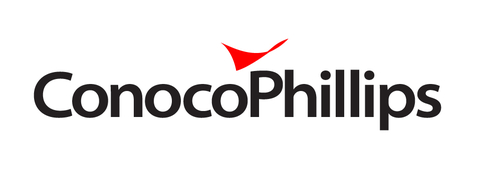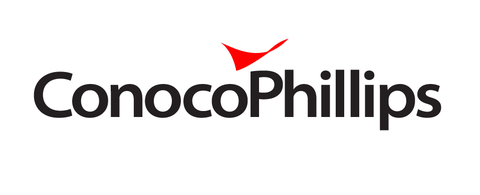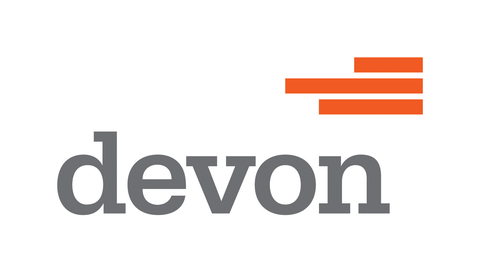HOUSTON--(BUSINESS WIRE)--Three leading U.S. oil and natural gas producing companies, Pioneer Natural Resources Company (NYSE: PXD), Devon Energy Corp. (NYSE: DVN) and ConocoPhillips (NYSE: COP), jointly announced today that they have joined the Oil and Gas Methane Partnership (OGMP) 2.0 Initiative. The initiative’s mission is to improve the industry’s transparency in methane emissions reporting and encourage progress in reducing those emissions. The companies’ membership in OGMP 2.0 demonstrates their commitments to reducing methane emissions and meeting U.S. and global energy demand with reliable and responsibly sourced production.
OGMP 2.0 has emerged as a global gold standard for methane emissions measurement and reporting. The initiative’s reporting framework will provide stakeholders with the assurance that this important greenhouse gas is being managed responsibly. In turn, participating companies will be provided with the means to credibly demonstrate that they are contributing to climate mitigation and delivering against their methane improvement objectives and targets. Joining the partnership also represents a commitment on the part of member companies to encourage improved methane reduction performance in reporting and methane emission reduction through transparency, flexibility and best practice sharing.
“Reducing greenhouse gas emissions, including methane, is an important priority for ConocoPhillips, and we are pleased to join industry members and stakeholders to advance this important area of emissions management,” said Ryan Lance, ConocoPhillips Chairman and Chief Executive Officer. “We believe that applying the rigorous OGMP 2.0 reporting standard across our global assets will be a vital step on our path to net-zero operational emissions by mid-century.”
"Deployment of advanced methane detection technology and enhanced transparency are key components to Devon's broader emission reduction strategy, including our aim to achieve net zero GHG emissions for Scopes 1 and 2 by 2050," said Rick Muncrief, President and CEO, Devon Energy. "We believe that collaboration and collective efforts are needed to advance meaningful change at a fast pace, and are excited to be joining OGMP 2.0 with our industry peers that share Devon's intention of delivering energy to the world while reducing our impact on the environment."
“Given that we operate in one of the largest oil producing basins in the world, enabling the reduction of methane emissions by utilizing accurate and transparent reporting is imperative for Pioneer as well as other large producers in the Permian Basin,” said Scott Sheffield, CEO of Pioneer Natural Resources Company. “We are excited to join OGMP 2.0 and collaborate with the United Nations Environment Programme, along with industry members and other stakeholders, on this important initiative to reduce methane emissions.”
“With Pioneer, Devon and ConocoPhillips joining OGMP 2.0, we have significantly increased the participation of U.S.-based companies,” said Giulia Ferrini, OGMP 2.0 Manager at UNEP. “We hope their membership encourages others to join this global effort aimed at improving methane emissions measurement and transparency, thereby supporting the goals of the Paris Agreement and the Global Methane Pledge.”
"We’re glad to see these companies take a leadership role in advancing methane measurement and disclosure,” said Andrew Logan, Senior Director of oil and gas at Ceres. “Oil and gas companies must be accountable for their methane emissions, which not only carry an outsized and avoidable climate impact, but also represent needlessly lost product, an obvious concern for any prudent shareholder. The Oil and Gas Methane Partnership 2.0 is a strong framework to advance both detection and accurate reporting, and it is important that we see other oil and gas companies follow ConocoPhillips, Devon, and Pioneer and join."
“All eyes today are on the oil and gas industry. Stakeholders are demanding real, robust emissions data that they can trust,” said Mark Brownstein Senior Vice President for Energy at the non-profit Environmental Defense Fund. “Cutting methane emissions is the simplest, fastest way to help meet our energy and climate goals, even as the world moves forward on long term decarbonization. Solutions exist for companies to cut emissions quickly and cost-effectively. OGMP provides a comprehensive and transparent framework to see and compare their results.”
The OGMP 2.0 Initiative is a voluntary, public-private partnership between the United Nations Environment Programme, the European Commission, the Environmental Defense Fund and over 80 oil and gas companies aimed at minimizing methane emissions from global oil and gas operations. Its work has helped to raise awareness of methane emissions and contributed to the growing priority of mitigation activities.
--- # # # ---
About ConocoPhillips
ConocoPhillips is one of the world’s leading exploration and production companies based on both production and reserves, with a globally diversified asset portfolio. Headquartered in Houston, Texas, ConocoPhillips had operations and activities in 13 countries, $93 billion of total assets and approximately 9,400 employees at March 31, 2022. Production averaged 1,747 MBOED for the three months ended March 31, 2022, and proved reserves were 6.1 BBOE as of Dec. 31, 2021. For more information, go to www.conocophillips.com.
About Devon Energy
Devon Energy is a leading oil and gas producer in the U.S. with a premier multi-basin portfolio headlined by a world-class acreage position in the Delaware Basin. Devon’s disciplined cash-return business model is designed to achieve strong returns, generate free cash flow, and return capital to shareholders, while focusing on safe and sustainable operations. For more information, visit www.devonenergy.com.
About Pioneer Natural Resources
Pioneer is a large independent oil and gas exploration and production company, headquartered in Dallas, Texas, with operations in the United States. For more information, visit Pioneer’s website at www.pxd.com.
About OGMP 2.0
The Oil & Gas Methane Partnership 2.0 (OGMP 2.0) is a multi-stakeholder initiative launched by UNEP and the Climate and Clean Air Coalition. The OGMP 2.0 is the only comprehensive, measurement-based reporting framework for the oil and gas industry that improves the accuracy and transparency of methane emissions reporting in the oil and gas sector. Already 80 companies with assets on five continents representing over 30% of the world’s oil and gas production, as well as over 20% of global natural gas transmission and distribution pipelines, over 10% of global storage capacity and nearly 15% of global LNG terminals have joined the partnership. For more, visit www.ogmpartnership.com.
CAUTIONARY STATEMENT FOR THE PURPOSES OF THE "SAFE HARBOR" PROVISIONS OF THE PRIVATE SECURITIES LITIGATION REFORM ACT OF 1995
This release contains forward-looking statements as defined under the federal securities laws. Forward-looking statements relate to future events and anticipated results of operations, business strategies, and other aspects of our operations or operating results. Words and phrases such as "anticipate," "estimate," "believe," “budget,” "continue," "could," "intend," "may," "plan," "potential," "predict," “seek,” "should," "will," “would,” "expect," "objective," "projection," "forecast," "goal," "guidance," "outlook," "effort," "target" and other similar words can be used to identify forward-looking statements. However, the absence of these words does not mean that the statements are not forward-looking. Where, in any forward-looking statement, there is an expression of an expectation or belief as to future results, such expectation or belief is expressed in good faith and believed to be reasonable at the time such forward-looking statement is made. However, these statements are not guarantees of future performance and involve certain risks, uncertainties and other factors beyond our control. Therefore, actual outcomes and results may differ materially from what is expressed or forecast in the forward-looking statements. Factors that could cause actual results or events to differ materially from what is presented include the impact of public health crises, including pandemics (such as COVID-19) and epidemics and any related company or government policies or actions; global and regional changes in the demand, supply, prices, differentials or other market conditions affecting oil and gas, including changes resulting from any ongoing military conflict, including the conflict between Russia and Ukraine and the global response to it, or from a public health crisis or from the imposition or lifting of crude oil production quotas or other actions that might be imposed by OPEC and other producing countries and the resulting company or third-party actions in response to such changes; changes in commodity prices; changes in expected levels of oil and gas reserves or production; potential failures or delays in achieving expected reserve or production levels from existing or future oil and gas developments, including due to operating hazards, drilling risks, or unsuccessful exploratory activities; unexpected cost increases, inflationary pressures, or technical difficulties in constructing, maintaining, or modifying facilities; legislative and regulatory initiatives addressing global climate change or other environmental concerns; investment in and development of competing or alternative energy sources; disruptions or interruptions impacting the transportation for oil and gas production; international monetary conditions and exchange rate fluctuations; changes in international trade relationships, including the imposition of trade restrictions or tariffs on certain materials or products (such as aluminum and steel), including any sanctions imposed as a result of any ongoing military conflict, including the conflict between Russia and Ukraine; general domestic and international economic and political conditions or developments; disruptions resulting from accidents, extraordinary weather events, civil unrest, political events, war, terrorism, cyber attacks or information technology failures, constraints or disruptions and other economic, business, competitive and/or regulatory factors affecting business generally as set forth in our filings with the Securities and Exchange Commission. Unless legally required, we expressly disclaim any obligation to update any forward-looking statements, whether as a result of new information, future events or otherwise.






